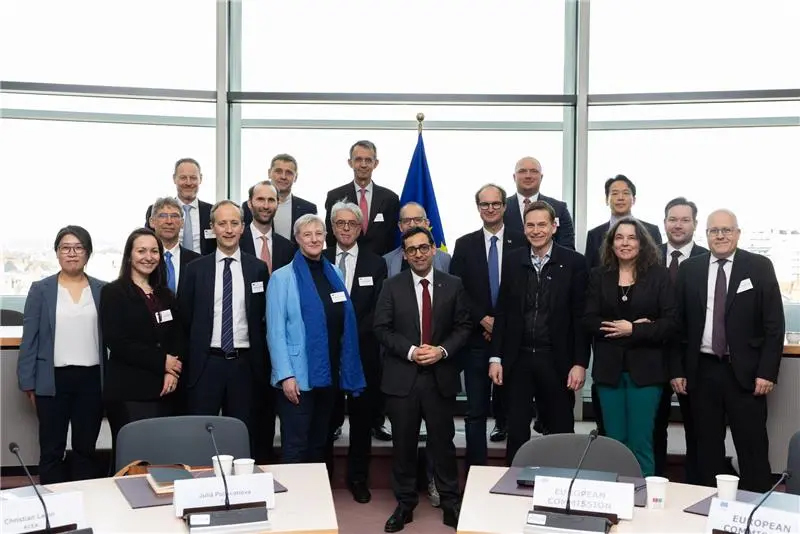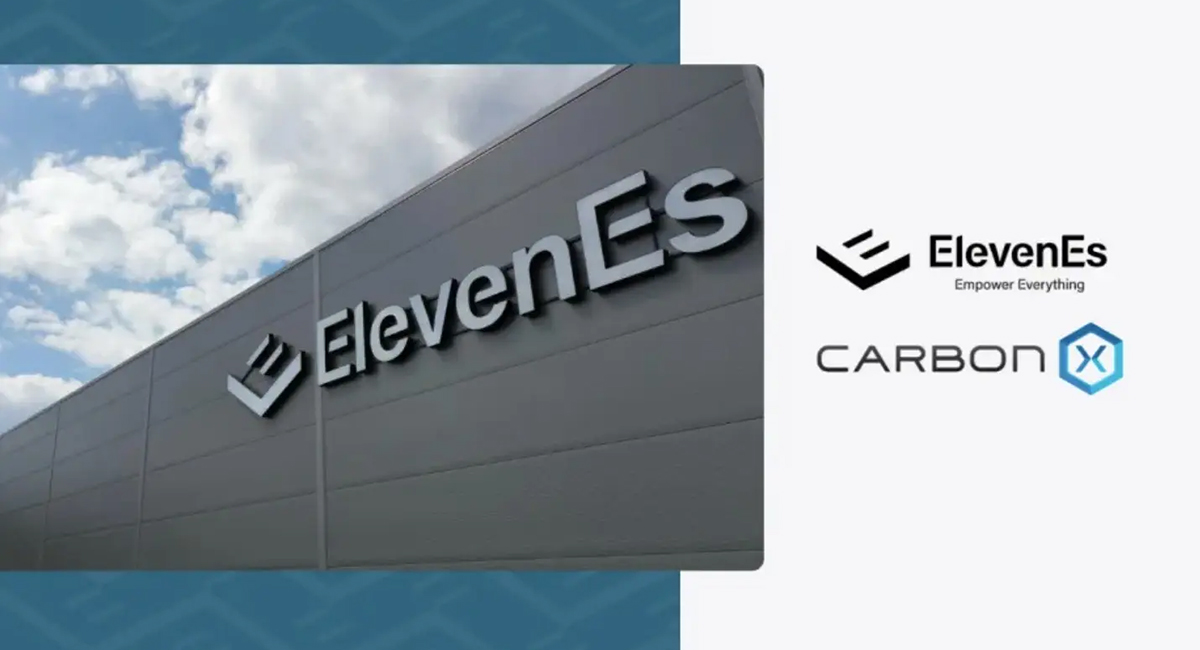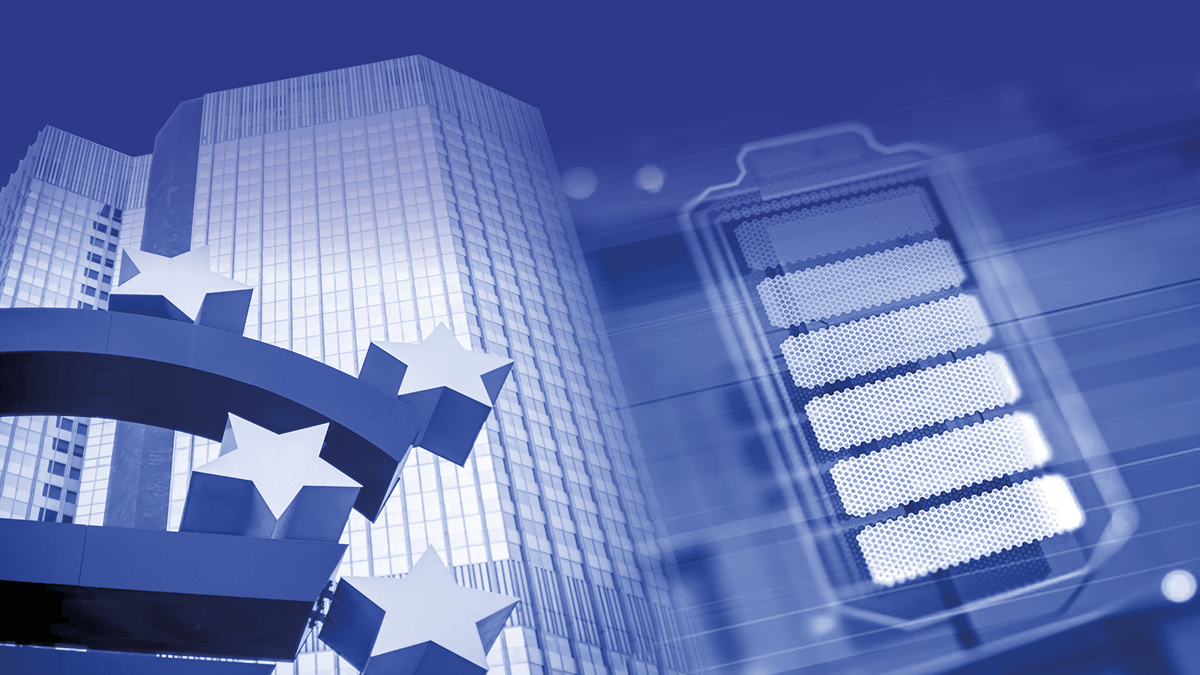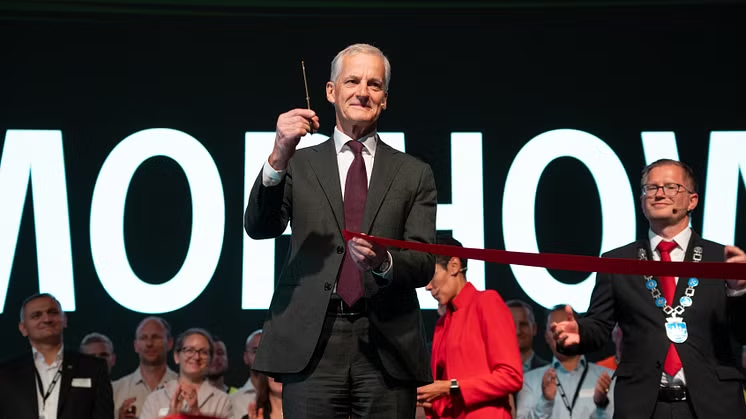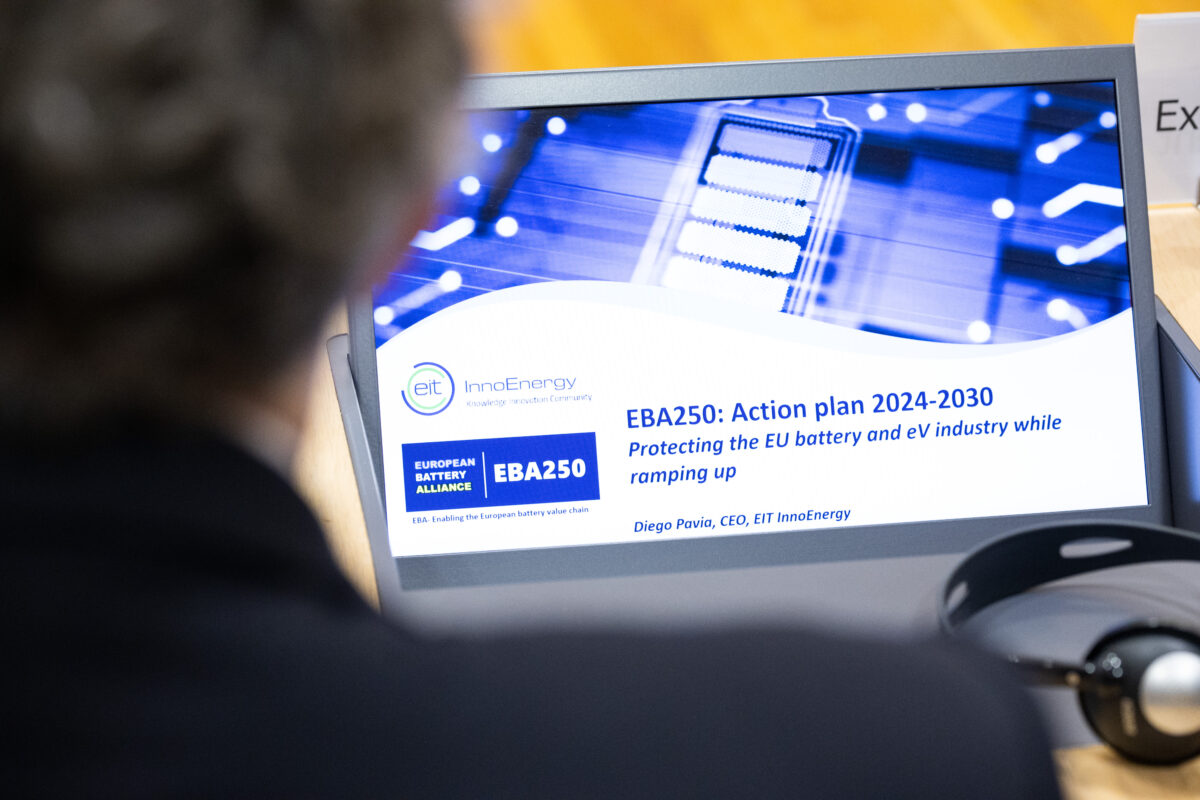
Mar 29, 2022
Joint statement for an accelerated action plan to support the growth of the European battery industry
On March 23 was held in Brussels the European Battery Alliance (EBA) High-Level Industrial Meeting organised and hosted by EBA250-EIT InnoEnergy. This meeting brought together key stakeholders along a battery value chain to take stock of the achievements of the EBA since its launch five years ago.
The high-level representatives of the EBA confirmed their commitment to build a resilient, sustainable and competitive battery value chain in Europe and the need for an accelerated action plan to fill in remaining gaps until 2030. In light of this meeting and together with them, EBA250 has written a joint statement underlining the priority actions to implement in order to support the continuous growth of the EU battery value chain.
Both the Covid pandemic and war in Ukraine have indeed highlighted the fundamental need for resilient industrial value chains, including batteries, for the EU’s economic growth and decarbonisation, as well as for its strategic autonomy. Despite significant progress achieved in building the sustainable and vertically-integrated battery value chain in the EU – as reaffirmed during the sixth EBA Ministerial meeting on 23 February 2022, there are still gaps to fill in to ensure the deployment of a resilient end-to-end battery industry. These concern in particular:
- The upstream segment: mining of domestic raw materials, processing and refining, and production of active battery grade materials,
- The downstream segment: recycling of EOL (End Of Life) or scrap from production facilities, for an introduction of high-quality recycled metals back in the EU supply chain,
- The skills needed, both for white- and blue-collar workers, for designing and operating the numerous industrial projects mentioned above.
Several priority actions have been identified to support the continuous growth of the EU battery value chain, including a rapid adoption and implementation of the EU battery regulation, a swift adoption of relevant legislative provisions in the “fit-for-55” package, the implementation of an upgraded toolbox to support and de-risk investments in raw and processed battery materials.
In addition, being ahead of the plan that we set ourselves in 2017 for 2025 (€250 billion of new annual GDP, and 400 GWh of cell manufacturing capacity committed), we consider it necessary to update the 2018 European Strategic Action Plan on Batteries. We therefore request the collaboration of the European Commission to update the strategic action plan with a view to achieve equally ambitious objectives for 2030.
For more detailed information, read the joint statement here.
More EBA250 news
InnoEnergy, the driving force behind the EBA250 initiative, introduces today its new brand identity,…
The new EU-funded facility will enhance global raw materials partnerships and access to Critical…
Last week, InnoEnergy and EBA250 represented the battery value chain in Brussels alongside Verkor…
ElevenEs, a European LFP lithium-ion battery manufacturer, has signed a Joint Development Agreement with…
The European battery industry has come a long way since the launch of the…
The 2024 Innovation Fund calls for proposals have been launched this week, with a…
Altris, a pioneering Swedish developer of sodium-ion battery technology, has reached significant milestones that…
Last Friday, Morrow Batteries officially inaugurated the first giga-scale LFP (Lithium Iron Phosphate) cell…
On May 24, 2024, the 8th High-Level Meeting of the European Battery Alliance (EBA)…
Following the recent announcement from EVP Šefčovič on the need to support manufacturing of…


